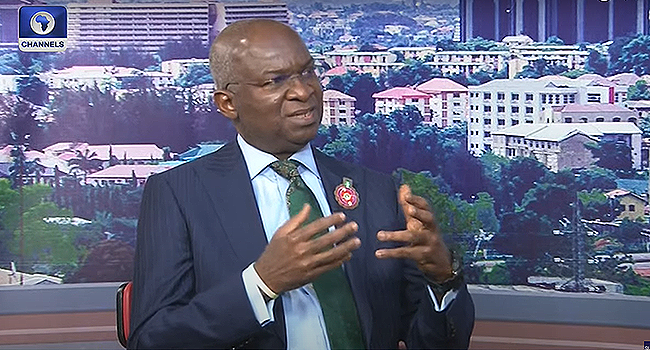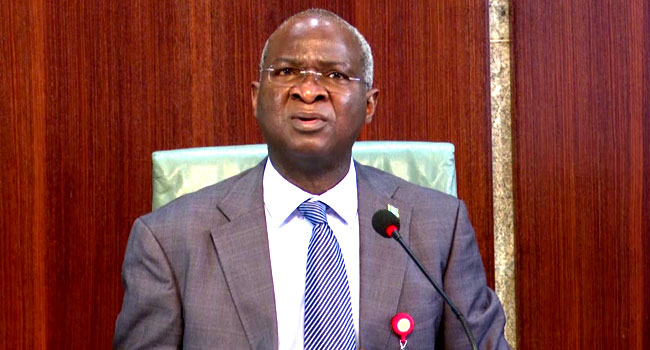Privatisation of most Federal Government-owned and managed amenities cannot be an efficient model of governance, the Minister of Works and Housing, Babatunde Fashola said on Wednesday.
Fashola, who spoke during a live appearance on Channels Television’s Sunrise Daily, critiqued the effectiveness of the public-private partnerships (PPPs) deployed by previous administrations in delivering infrastructure projects.
“That was the model that we met and the model was not coming forth with the money, so when people also talk about this PPPs – because I hear candidates saying they are going to privatise everything, give everything to the private sector – you need to understand the global private sector, first of all, is largely MSMEs,” he said.
The presidential candidate of the Peoples Democratic Party (PDP), Atiku Abubakar, amongst others had insisted that selling some government assets to the private sector is the best for the country’s economy.
However, Fashola said, “You can’t give everything to them; they don’t even have the capacity. The micros employ roughly about 10 people, the medium less than 50, and the small less than 200. So, it can’t be a governance model to say you are going to give everything to the private sector. How large are they?”
The Federal Government’s investment in infrastructure projects, according to him, has earned President Muhammadu Buhari and his administration, by extension, commendation.
READ ALSO: IPOB ‘Sit-At-Home’ Has Affected Completion Of Second Niger Bridge – Fashola
The minister attributed the government’s success to its decision to finance infrastructure by mobilisation of the nation’s resources, which he described as a departure from “nebulous PPPs” that were “ill-thought-out and delayed the execution of the projects.”
According to him, the government prioritises the repatriation of funds stolen by previous officials to fund its infrastructure projects.
“So, when people are talking about poverty today, remember that some people cause and contributed to it by taking money out of our commonwealth and going to stash it abroad. We’ve brought some of that money; some are still coming in.
“Then our income dividends from NLNG – they said, ‘Dedicate it to these projects. Just keep going and we’re getting recoveries also from different areas but money is not enough to finish the project in terms of not having all the cash sitting. But every income that comes is dedicated to this project in terms of recoveries, our income dividends, and so on,” he said.
The minister discussed some of the challenges he encountered upon assuming office in 2015, adding that his proposal to Buhari to end the PPP model was well received.
“When I took office, I called them (private-sector partners) and I said, ‘There was this plan that you said you were going to mobilise. Is this plan still viable?’ And they said no, that they can’t raise the money. So, I wrote a memo to the President that ‘this is not going to work.’
“My recommendation (was): ‘Every little penny you can gather, let’s (use to) start building. And if we start building, it de-risks the project and at any time, if anybody feels willing and able to come and buy out the government, we can hand it over. But let’s start building.’
“And the President has accepted the recommendation and after a few weeks, he asked his Chief of Staff to inform me that he has set up a Presidential Infrastructure Development Fund (PIDF), which was monies now coming – the first tranche of money actually came from our dividend income from the NLNG.
“So, Nigeria Sovereign Investment Authority (NSIA) pays and every other fund is kept with NSIA, but they are all government funds. This is all government-funded, a hundred and one percent,” he said.




